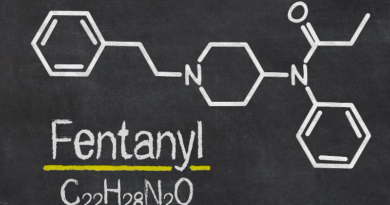Prenatal and Perinatal Risk Factors for ADHD: A Comprehensive Review
Did you know attention Deficit Hyperactivity Disorder (ADHD) is a common problem affecting millions of children in the US? According to Mental Health America, this health condition affects around 6.1 million children aged 2-17.
If you have a child with ADHD or suspect your child might have it, you’re likely wondering what factors led to their diagnosis. Many people aren’t aware that the condition can be present at birth, and they may not know how long it takes for symptoms to appear.
This article will help you understand what pre and perinatal factors cause this disorder in children.
Table of Contents
Prenatal Risk Factors of ADHD
Many risk factors for ADHD can be identified before your baby is born, including genetic predisposition and family history. These risks may be avoided by using folic acid supplements. Here are some of the prenatal risk factors of ADHD that you should know.
Genetic Predisposition and Family History
Genetic predisposition is the most predominant prenatal risk factor for ADHD. Genetic predisposition can be inherited from either parent, but it is more likely to be passed down from mothers than fathers.
In fact, in some cases, children may have no genetics in common with their biological parents because they inherited their ADHD-causing genes from an unknown ancestor who lived many generations ago. According to BJOG Journal, ADHD affects 3-7% of women of childbearing age. This may then be passed on to their children.
Environmental Toxins
Environmental toxins are some of the most well-known prenatal risk factors for ADHD. They can be found in everything from paint to car fumes and pesticides, and they’re especially dangerous to fetuses.
A controlled study conducted in May 2022 found that 9 out of 10 women, in a sample of 171 pregnant females, had 19 different chemicals in their bodies. Many of these can pass through the placenta, leading to prenatal exposure to ADHD risks.
Environmental toxins can affect brain development in several different ways. Firstly, they may damage neurons directly by interfering with their structure or function. Secondly, they may cause inflammation that damages neighboring cells or other parts of your body. Thirdly, some environmental toxins interfere with the way genes are expressed.
Medicinal toxins
Something as simple as a pregnant women’s exposure to certain medications can also lead to ADHD in their children. One of the most recent examples is the Tylenol exposure leading to ADHD in natal.
Tylenol is an acetaminophen drug that is proven to have increased the risks of ADHD in children. This was proven in 2018 when a study published in the American Journal of Epidemiology showed that Tylenol consumption by pregnant women increased the chances of ADHD by 30% in their children.
Due to this, many people filed lawsuits against the medicine manufacturer. Tylenol lawsuits have kept piling up since then, and many parents have seen the severe side effects of this medicine.
As the Torhoerman Law website specifies, Tylenol is one of the most commonly used over-the-counter medications for high fever and pain relief. However, since it is associated with ADHD, it is best to consult with your doctor.
If you or a loved one’s child has ADHD due to the mother’s exposure to Tylenol, you can hire an attorney to file a Tylenol lawsuit and get the compensation you deserve.
Maternal Health Factors
Maternal health factors are a prenatal risk factor for ADHD. These maternal health factors include stress, anxiety, depression, and trauma. Maternal stress has been linked to an increased risk for ADHD in offspring.
Maternal depression during pregnancy has been associated with an increased risk of behavioral problems in preschoolers. Prenatal maternal stress can increase the risk of attention deficits and hyperactivity in children later. Depression during pregnancy and postpartum affects around 20.7% and 17% of women, respectively.
Perinatal Risk Factors
Birth complications, such as prematurity, low birth weight, and fetal distress, are associated with an increased risk for ADHD. Neonatal health factors, such as neonatal hypoxia and jaundice, may also increase the likelihood of developing ADHD later in life.
Here are some perinatal risk factors for ADHD you should try to avoid.
Birth Complications
Birth complications are a perinatal risk factor for ADHD. They can cause the disorder, or they may result from it.
Many types of birth complications can place an infant at risk for developing ADHD later in life:
- Premature delivery
- Birth trauma
- Neonatal encephalopathy
Neonatal Health Factors
Neonatal health factors are another perinatal risk factor for ADHD. Infants born prematurely or with low birth weight have been found to have higher rates of attention-deficit/hyperactivity disorder (ADHD) than those born full-term.
This finding is important because it suggests that premature birth may be an environmental contributor to ADHD rather than being simply inherited from parents who carry genes for the disorder.
The neurobiological mechanisms underlying these associations remain unclear but may involve altered dopamine receptor expression or function during early postnatal brain development. Diagnosis and treatment implications are discussed in this review article by Drs Matthew Siegelman, David Bussetti, and colleagues at Boston University School of Medicine.
Early Feeding and Nutrition
It’s important to remember that breastfeeding is not a risk factor for ADHD. In fact, it can benefit your child’s health and development. Breastfeeding also helps protect against many illnesses, such as respiratory infections, diarrhea, and ear infections.
However, other prenatal and perinatal risk factors have been linked with ADHD:
- Maternal smoking during pregnancy increases the risk of having an ADHD-diagnosed child by 50%
- Drinking alcohol while pregnant increases the chances of having a child with an attention deficit disorder by 66%
Diagnosis and Treatment Implications
The most important thing to know about ADHD is that it is a lifelong disorder. That means that you will need to continue treatment throughout your life, even after your child stops taking medication or goes through behavioral therapy.
If you are concerned about whether or not your child has ADHD, please consult their pediatrician or a mental health professional who can make an accurate diagnosis and recommend treatment options based on their age and needs. The earlier in life you treat this disorder, the better off everyone involved will be.
Conclusion
In conclusion, we hope this article has helped you understand the prenatal and perinatal risk factors for ADHD. We know these are difficult topics to discuss, and we are here to help! If you or someone you love struggles with these issues, please reach out for support.







